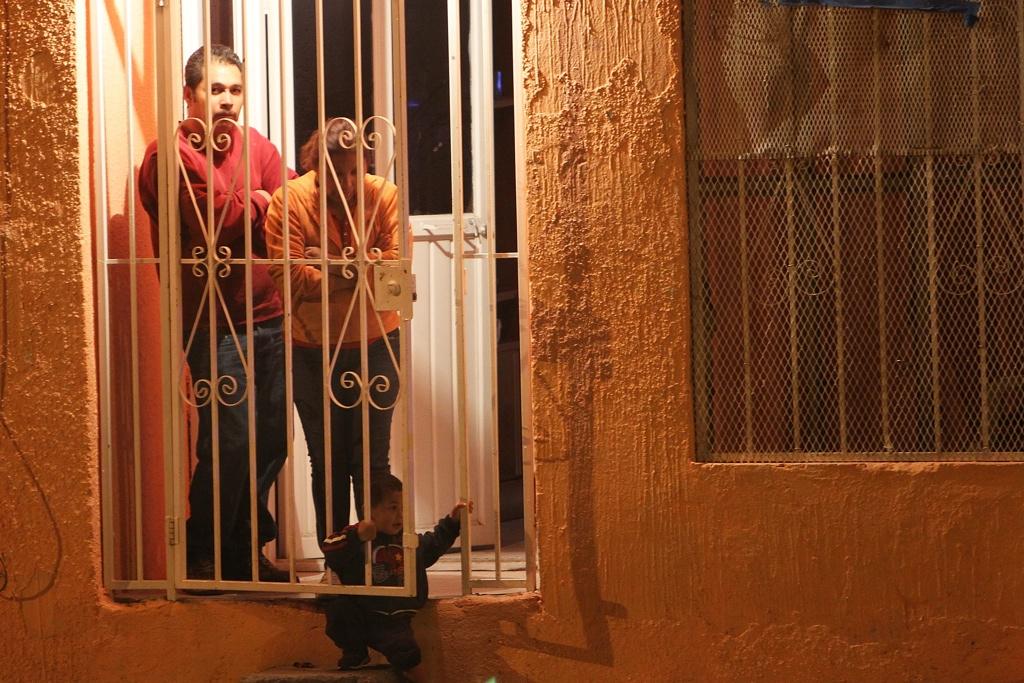Mexico: War on drugs to get new strategy
Residents look out at a crime scene involving the killing of a 13-year-old boy in Juarez, March 26, 2010. (Spencer Platt/Getty Images)
Mexico has unveiled their newest strategy on the country's war on drugs, one that involves filtering money into the communities most affected by drug violence and criminal organization.
According to the Associated Press, the government plans on taking the 251 most violent towns and neighborhoods and turning them into investments– building better roads and increasing school hours, putting more emphasis on arts and culture and giving neighborhoods playgrounds.
“It’s clear that we must put special emphasis on prevention, because we can’t only keep employing more sophisticated weapons, better equipment, more police, a higher presence of the armed forces in the country as the only form of combating organized crime,” said Mexico President Enrique Pena Nieto to an audience in Aguascalientes, AP reported.
The strategy is in direct contrast to that Pena Nieto's predecessor, Felipe Calderon, who deployed thousands of troops to battle the cartels and often bragged about the drug-gang leaders who were arrested and killed under his tenure.
According to the New York Times, 47,515 people have been killed in drug-related violence since Calderon began his military assault in 2006.
When he ran for president, Pena Nieto emphasized that he didn't plan on stopping drug shipments or capturing kingpins– instead he wanted to focus on curving the violent crime that plagues much of Mexico. Unlike Calderon, he said that he didn't plan to "subordinate to the strategies of other countries."
Mexico's war on drugs itself could be threatened with the United States' decision to legalize recreational marijuana, a measure approved by voters in Washington and Colorado.
According to a GlobalPost report, if pot is legalized in the US, Mexican drug traffickers could lose about 30 percent of the estimated $6.5 billion they earn each year.
Regardless, analysts and US lawmakers have worried that the Pena Nieto government is simply easing back on the drug cartels that don't use violence as a means to their ends.
Mexico Interior Secretary Miguel Angel Osorio Chong is a firm believer in the new strategy, however. He told audiences on Tuesday that this was the first state policy that "puts the citizen, and our youth, at the center of security."
“We’re convinced that fighting and punishment don’t solve the problem," he said.
Every day, reporters and producers at The World are hard at work bringing you human-centered news from across the globe. But we can’t do it without you. We need your support to ensure we can continue this work for another year.
Make a gift today, and you’ll help us unlock a matching gift of $67,000!
